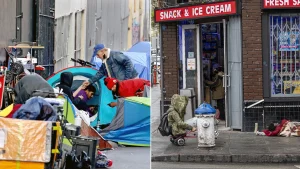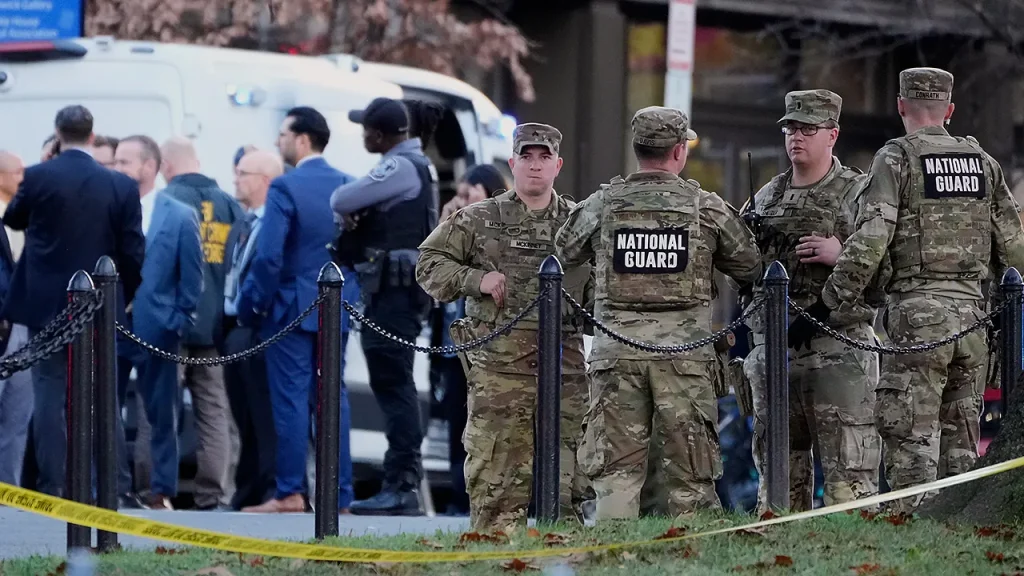The Fall-out from an Attack Near the White House
In a shocking incident that has sent ripples through the nation, two West Virginia National Guard members were shot near the White House in what officials are describing as a targeted attack. The suspected shooter, Rahmanullah Lakanwal, a 29-year-old Afghan national who entered the United States in September 2021, is now in custody as authorities investigate potential links to international terrorism. This troubling event raises serious questions about the vetting process for Afghan allies brought to the U.S. following the withdrawal from Afghanistan and highlights the ongoing security challenges faced by the nation.
According to exclusive reporting, Lakanwal’s path to America came through “Operation Allies Welcome,” a program designed to resettle Afghan allies following the U.S. withdrawal from Afghanistan in August 2021. What makes this case particularly complex is that Lakanwal reportedly had prior relationships with various U.S. government entities, including the CIA, as a member of a partner force in Kandahar. Former CIA Director John Ratcliffe expressed strong criticism of the Biden administration’s handling of the Afghanistan withdrawal, stating that “the individual—and so many others—should have never been allowed to come here,” characterizing the situation as part of the “ongoing fallout from the Biden administration’s catastrophic failures.” This perspective reflects broader concerns about the vetting process for Afghan allies and the potential security risks associated with the hasty evacuation.
The shooting itself has been described in sobering terms by officials. Former President Donald Trump called it a “savage attack” and a “monstrous ambush-style attack” that occurred “just steps away from the White House.” He characterized the incident as an “act of evil and act of hatred and an act of terror” and “a crime against our entire nation.” The emotional weight of these descriptions reflects the shock felt across the country as Americans grapple with an attack that targeted members of the U.S. military near one of the nation’s most iconic symbols of government. DC Mayor Muriel Bowser confirmed the targeted nature of the attack, stating that “one individual appeared to target these guardsmen.”
The human cost of this incident cannot be overlooked. As of the latest reports, both National Guard members remain in critical condition, fighting for their lives after being shot while serving their country. Their families now face the agonizing wait for news about their loved ones’ recovery, while communities across West Virginia and the entire nation rally in support. Trump captured the national sentiment when he said, “The hearts of all Americans tonight are with those two West Virginia National Guard members and their families,” adding that “the love of our entire country is pouring out for them.” Behind the political discourse and security concerns lie two individuals whose lives have been forever altered while performing their duty.
The investigation into this shooting is now being led by the FBI, with multiple high-level intelligence sources indicating it is being investigated as a possible act of international terrorism. This classification signals the seriousness with which authorities are treating the incident and suggests concerns about potential ideological motivations behind the attack. The investigation will likely scrutinize Lakanwal’s background, activities since arriving in the United States, and any potential radicalization or connections to terrorist organizations. The outcome of this investigation may have significant implications for U.S. security policies, particularly regarding the vetting and monitoring of individuals brought to the country through programs like Operation Allies Welcome.
This attack occurs within a broader context of national debates about immigration, refugee resettlement, and the legacy of America’s longest war in Afghanistan. The hasty withdrawal from Afghanistan in 2021 was controversial, with critics arguing it was poorly planned and executed. Now, nearly three years later, this shooting near the White House represents a painful reminder of the complex and sometimes dangerous aftermath of that withdrawal. As the investigation unfolds and the nation hopes for the recovery of the wounded National Guard members, difficult questions will continue to be asked about how to balance humanitarian obligations to allies abroad with the paramount responsibility of keeping Americans safe at home. The resolution of these questions will shape not only the response to this specific incident but also future policies regarding national security and immigration.















